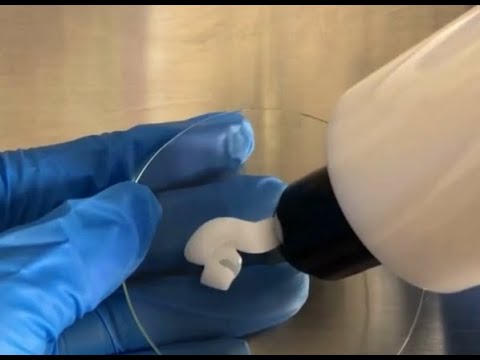Unlocking the Wonders of Acetyls: Everything You Need to Know
Acetyls: A Versatile Group of Chemical Compounds
Acetyls are a group of chemical compounds that have been utilized for various purposes in different industries, ranging from pharmaceuticals to food production. Acetylation, which is the process of introducing an acetyl functional group to a chemical compound, is one of the most common chemical reactions used to synthesize acetyls. The most well-known acetyls are acetylsalicylic acid (aspirin) and acetylcholine. Let’s take a closer look at this versatile group of compounds.
Acetylsalicylic Acid: The Famous Painkiller
Acetylsalicylic acid, or simply aspirin, is one of the most widely used painkillers worldwide. The compound was first synthesized in 1897 by a German chemist named Felix Hoffmann, who worked for the pharmaceutical company Bayer. Aspirin is used to relieve pain, reduce fever, and decrease inflammation. It also has anticoagulant properties, which make it useful for preventing heart attacks and strokes. Moreover, studies have shown that aspirin can help lower the risk of developing different types of cancers.
Acetylcholine: The Neurotransmitter
Acetylcholine is a neurotransmitter that is responsible for transmitting messages between nerve cells and muscle cells in the body. The compound was first discovered in 1914 by the British physiologist Henry Hallett Dale, who received a Nobel Prize in Medicine for his work on neurotransmitters. Acetylcholine is involved in several bodily functions, such as controlling muscle movements, regulating the cardiovascular system, and enhancing cognitive functions. Deficiencies in acetylcholine have been linked to several neurological disorders, such as Alzheimer’s disease.
Other Acetyls: From Food Additives to Solvents
Acetyls are also used as food additives to enhance the flavors and aromas of various food products. For example, acetic acid, which is the main component of vinegar, is often used as a condiment and food preservative. Additionally, acetaldehyde, which is an acetyl derivative, is used as a flavoring agent in many types of fruits, dairy products, and alcoholic beverages.
In industrial settings, acetyls are used as solvents, reagents, and catalysts in various chemical processes. For instance, acetic anhydride is a crucial reagent in the production of cellulose acetate, which is used to make photographic film and synthetic fibers. Similarly, acetic acid ethenyl ester, also known as vinyl acetate, is used to produce polyvinyl acetate, a common adhesive and paint binder.
Conclusion
In conclusion, acetyls comprise a diverse group of chemical compounds that are used in various industries and fields. From aspirin to acetic anhydride, acetylation has enabled the synthesis of numerous useful and important compounds. The impact of acetyls on human health and technology is significant, and their versatility and flexibility make them an essential part of chemical research and development.
Most searched products:
Does Sephora Support Israel? Answering Your Questions
Discover the Benefits of The Ordinary Botox for Your Skin
How Long Does Glycolic Acid Take to Show Results: Your Ultimate Guide
The Ultimate Guide to Azealic Acid: Benefits, Uses, and Side Effects
The Ultimate Reviews of The Ordinary Peeling Solution
The Ultimate Guide to The Ordinary Colours Foundation: Reviews, Swatches, and Tips
The Perfect Order: When to Use Retinol and Niacinamide in Your Skincare Routine
Find Your Perfect Skin Mate: Tips and Tricks for Flawless Skin
All You Need to Know: Lactic Acid Uses and Benefits
Say Goodbye to Dry Lips with the Best Skin Lip Balms













